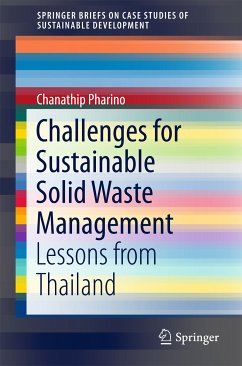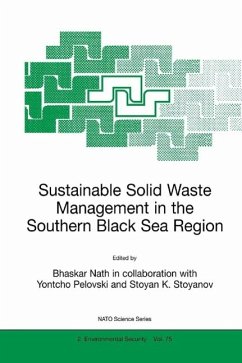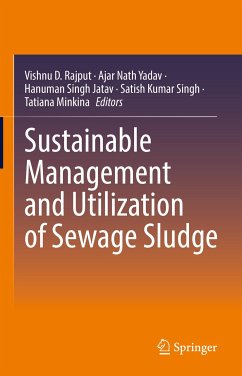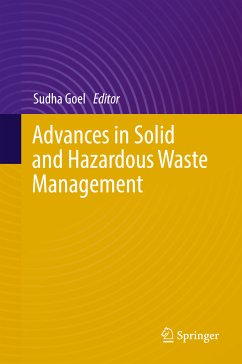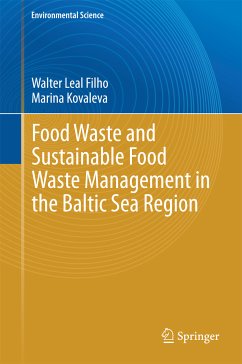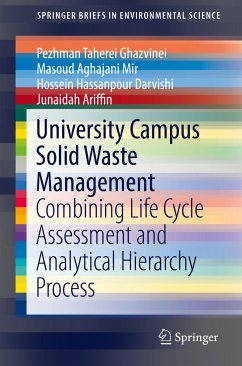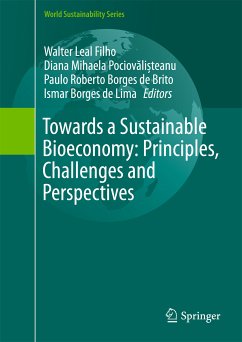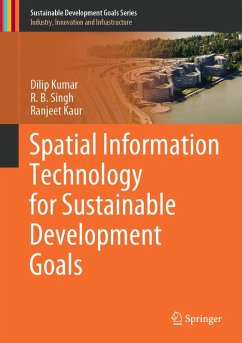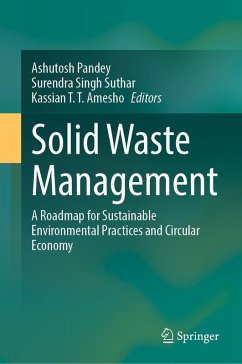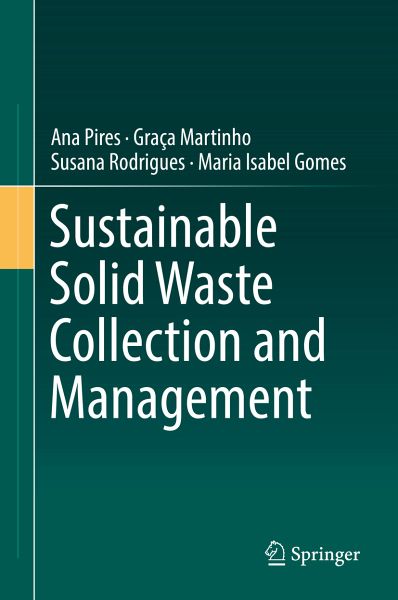
Sustainable Solid Waste Collection and Management (eBook, PDF)
Versandkostenfrei!
Sofort per Download lieferbar
104,95 €
inkl. MwSt.
Weitere Ausgaben:

PAYBACK Punkte
52 °P sammeln!
This volume focuses on the collection of waste and waste streams as an integral aspect of sustainable waste management. The authors take economic models and behavioral studies into account to go beyond just descriptions of waste collections technologies and collection route design. Models and tools for sustainable waste collection are described in detail, and the authors provide a comprehensive, integrated methodology to design waste collection systems that reduce environmental impacts, are economically viable, and achieve buy-in and participation from target populations. Part I of the book pr...
This volume focuses on the collection of waste and waste streams as an integral aspect of sustainable waste management. The authors take economic models and behavioral studies into account to go beyond just descriptions of waste collections technologies and collection route design. Models and tools for sustainable waste collection are described in detail, and the authors provide a comprehensive, integrated methodology to design waste collection systems that reduce environmental impacts, are economically viable, and achieve buy-in and participation from target populations.
Part I of the book provides fundamentals and context on waste hierarchy, including waste prevention, reduction and reuse, waste collection itself, and steps such as preparation for recycling, recycling, treatment, and landfilling. Background in environmental, social, and economic concerns surrounding waste collection is also provided here. Part II addresses tools for design, operation, and maintenance of wastecollection systems. Part III focuses on how the tools presented in Part II can be used to support sustainability assessments and decisions that consider the entire life cycle of waste and the role of waste collection programs in waste prevention, reduction, reuse, recycling, treatment, and disposal. Part IV addresses the challenges of developing sustainable waste management systems and addresses the role of waste collection in sustainable waste management in the future.
Part I of the book provides fundamentals and context on waste hierarchy, including waste prevention, reduction and reuse, waste collection itself, and steps such as preparation for recycling, recycling, treatment, and landfilling. Background in environmental, social, and economic concerns surrounding waste collection is also provided here. Part II addresses tools for design, operation, and maintenance of wastecollection systems. Part III focuses on how the tools presented in Part II can be used to support sustainability assessments and decisions that consider the entire life cycle of waste and the role of waste collection programs in waste prevention, reduction, reuse, recycling, treatment, and disposal. Part IV addresses the challenges of developing sustainable waste management systems and addresses the role of waste collection in sustainable waste management in the future.
Dieser Download kann aus rechtlichen Gründen nur mit Rechnungsadresse in A, B, BG, CY, CZ, D, DK, EW, E, FIN, F, GR, HR, H, IRL, I, LT, L, LR, M, NL, PL, P, R, S, SLO, SK ausgeliefert werden.



